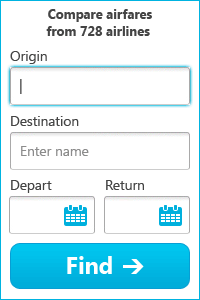



TRANSPORTATION IN ISTANBUL
Transportation in Istanbul is simple, convenient, and safe, with options for sea, air, and road travel. Like everyone else, you can get and utilize an anonymous, non-personalized Istanbulkart. It is as simple as placing the Istanbulkart on the card readers found on turnstiles or validator devices found on public transportation vehicles to use it (bus, subway, tram, cable car, marmaray, Metrobus, ferry, etc.).
Urban Transportation
Apart from minibuses and buses, the Metrobus, subway, marmaray, tram, marine vessels, and funicular are some of the most commonly used urban transit vehicles. Don’t miss a ride in the Tunnel connecting Istanbul’s two major centers, Karakoy and Beyoglu, which, after being inaugurated in 1875, is the world’s second-oldest underground after the London metro.
Metrobus
The Metrobus is an ecologically conscious and cost-effective public transportation system that helps people travel fast and pleasantly without getting stuck in traffic.
Stations: http://metrobus.iett.istanbul/tr/metrobus/istasyonlar
Historical and touristic places located over the route: http://metrobus.iett.istanbul/tr/metrobus
Subway
The Istanbul Subway, which transports over 2 million passengers every day around Istanbul, is one of the brands whose service quality is acknowledged as an example around the world. The International Association of Public Transportation has named the T1 Kabatas-Bagcilar Tram Line as the best implementation in the world for addressing high passenger demand.
Subway Routes: https://www.metro.istanbul/Hatlarimiz?hatturu=metro
Time Tables: https://www.metro.istanbul/SeferDurumlari/SeferDetaylari
Marmaray
The Marmaray Project, one of the world’s most important projects, permits passage by connecting railway lines on both sides of the Bosporus with a tunnel built beneath the strait.
Station information and daily train schedules: http://marmaray.gov.tr/sefer-bilgileri/gunluk-tren-saatleri/
Ferry
Passengers can travel through the Bosporus, Halic, and Adalar lines aboard Sehir Hatlari A.S. ferries while taking in the spectacular views of the cultural buildings along the lines. Sehir Hatlari A.S. transports over 40 million passengers each year, with an average of 600 services per day.
Passengers with impairments can ride safely on sea buses thanks to specifically engineered double-sided boarding ramps, indicated smooth surface features, and spacious corridors.
Time Tables: https://www.sehirhatlari.istanbul/tr/seferler/ic-hatlar
Tram
Tram Line T1 Kabatas-Bagcilar
The entire line’s stations are built with ramps that meet the technical criteria for people with special needs and are appropriate for the operation of low-floored tramcars. Because the station was located in the Topkapi underpass, only an elevator was available for access to Topkapi station.
Line information: https://www.metro.istanbul/Hatlarimiz/HatDetay?hat=T1
T3 Kadikoy-Moda Tram Line
It’s also known as the “Nostalgic Tram Line” because it runs on the same path as the old tram line number 20 and still uses nostalgic tramcars.
Line information: https://www.metro.istanbul/Hatlarimiz/HatDetay?hat=T3
T4 Topkapi – Mescid-i Selam Tram Line
The line that runs between Mescid-i Selam and Topkapi has a total length of 15.3 kilometers.
Line information: https://www.metro.istanbul/Hatlarimiz/HatDetay?hat=T4
Funicular
The Taksim – Kabatas Funicular Project, which opened in 2006, was designed to combine marine, land, and train transit.
Line information: https://www.metro.istanbul/Hatlarimiz/HatDetay?hat=F1
Cable Car
TF1 Macka-Taskisla Cable Car Line
The line eliminates the difficulty of traveling between Demokrasi Park and Beyoglu Marriage Office while saving time and providing a nice view of Istanbul with the unique landscape of the route.
Line information: https://www.metro.istanbul/Hatlarimiz/HatDetay?hat=TF1
TF2 Eyup-Piyer Loti Tram Line
The station makes it easier to go to Piyer Loti (Pierre Loti) Hill, which is one of the most well-known tourist destinations on the planet.
Line information: https://www.metro.istanbul/Hatlarimiz/HatDetay?hat=TF2
Tunnel
The Tunnel was placed into operation and introduced into public use on January 18, 1875, one day after its inauguration ceremony. After being put into service, the Tunnel, which connects the two major centers of Istanbul, Karakoy, and Beyoglu, has become Istanbul’s second oldest metro, after the London underground. Istanbulkart is able to travel via the Tunnel. In the Tunnel, there are also automatic card recharging machines.
Time Tables: https://tunel.iett.istanbul/tr/tunel/pages/sefer-saatleri/544
Intercity Transportation
Roads connect Istanbul to every city in the country. Domestic transit departs from the Harem bus station on the Anatolian side and the Esenler international bus terminal on the European side.
International Transport
Transportation By Land Route
By land, Istanbul connects with Greece, Macedonia, Germany, France, Austria, Switzerland, Saudi Arabia, Syria, Russia (Moscow), Romania, Bulgaria, and Jordan (Amman).
Bus Terminal Phone: +90 212 658 05 05 – 658 10 10 – 658 00 36 (Line 9) – 333 37 63 – 310 63 63
Air Transportation
In Istanbul, there are two airports: Ataturk Airport on the European side and Sabiha Gokcen Airport on the Asian side. There is also the option of renting a plane or a helicopter.
Taxis in Istanbul
In Istanbul, over 17,000 taxis provide a speedy and pleasant method to go about. You can go wherever you want, whenever you want, in safety, fast, and comfortably.
If a taxi’s top light is on, the cab is ready to take a passenger. Furthermore, cab stands may be found throughout the city, as well as at all train stations and airports. There are taxis available for your use, as well as taxi-hailing locations where you can request a taxi. You are free to choose any available taxi cab.

